Folks,
Please take a few minutes and read the article quoted below.
This article uses MoneyGram as an example, but there is a message in here that all of you should heed. Until the time that the President has acted on abuse of power at federal agencies, we are all at risk to some level.
If you document efforts to do your job, and you actually seek out advice and try to the level of best efforts to follow the advice, you can defend yourself. But remember, the buck will stop somewhere.
Here is the article, a compliance recruiting company put this information into the public domain with what I see as their intent to educate and inform. I did not write this but it sure makes sense to me. They did a good job. Nothing more to say.
++++++++++++++++++++++++++++++++++++++++++++++++++++
“When the US government wanted to punish someone at MoneyGram for the company’s role in a $100m wire fraud, law enforcement did not go after the chief executive.
Instead, Preet Bharara, then the top US prosecutor in Manhattan, (who the President just fired) filed a civil lawsuit against Thomas Haider, MoneyGram’s chief compliance officer, seeking to collect a $1m Treasury Department penalty and to ban him from the industry. The 2014 litigation, which was settled earlier this month, was the US government’s first courtroom bid to hold a compliance officer personally responsible for not preventing financial wrongdoing. “Compliance officers find this case very troubling,” said Todd Cipperman, an industry consultant in Wayne, Pennsylvania. “To hold him accountable and not hold other senior executives accountable seems strange and unfair.” Compliance officers — among the corporate world’s least glamorous players — fear they are being sacrificed to the government’s desire to punish individuals for financial industry misdeeds. Earlier this month, Mr Haider agreed to pay a reduced fine of $250,000 — roughly equal to such executives’ typical annual salary — and to accept a three-year employment ban. His case comes as other regulators target the professionals who are responsible for ensuring that their employers remain on the right side of legal and regulatory lines. The UK securities watchdog handed out its first fine to a compliance officer in 2008 and British enforcers stepped up activities in this area in 2015. The Financial Conduct Authority and its predecessor have brought a series of cases where the officer either failed to make sure his or her company was complying with regulations or failed to adequately detect or question potential market abuse. Among them was a high profile £130,000 fine of the former compliance officer of Greenlight Capital, a US hedge fund.
In the US, Finra, the industry regulator in 2014 fined Brown Brothers Harriman’s chief compliance officer $25,000 and suspended him for one month for compliance failures. The Securities and Exchange Commission, which also has acted in several cases, says it will not pursue compliance professionals unless they are involved in wrongdoing, mislead investigators, or are negligent. This has failed to calm industry nerves. “These compliance officers are doing the best they can,” said Jonathan Lopez of Orrick, Herrington & Sutcliffe and a former federal prosecutor in money laundering cases. “It’s a pretty harrowing field to be operating in.” Still, even some who are skeptical of the government’s crackdown say Mr Haider’s failures were notable. His punishment grew out of an investigation by the Treasury Department’s Financial Crimes Enforcement Network, which concluded that MoneyGram had turned a blind eye to consumer fraud on its network of money-moving outlets. For five years beginning in 2004, scam artists defrauded “tens of thousands” of often-elderly customers by posing as relatives in need of emergency aid or by promising large lottery prizes or attractive job offers in return for cash wired via MoneyGram, according to the US Department of Justice. The fraudsters’ co-conspirators included an expatriate Nigerian tribal chief, who owned several MoneyGram outlets. The company signed a deferred prosecution agreement with the DoJ in 2012, conceding that it had criminally aided and abetted wire fraud and failed to maintain an effective anti-money laundering program as required by the Bank Secrecy Act. MoneyGram agreed to the appointment of a court-ordered monitor and surrendered $100m to repay its victims.
The DoJ said the company was guilty of a “systematic, pervasive and wilful failure” to meet its anti-money laundering obligations. Even as annual fraud reports ballooned to 19,614 in 2008 from 1,575 in 2004, MoneyGram failed to close suspect outlets, federal prosecutors said. As compliance chief, Mr Haider was directly responsible for managing MoneyGram’s anti-fraud programs. But on his watch, MoneyGram admitted filing erroneous “suspicious activity reports” with the Treasury Department that identified fraud victims as the fraudster, according to court documents. Since Mr Haider left the company in 2008, its “management, organizational structure, and compliance programs have changed significantly”, MoneyGram said, adding that it “has invested hundreds of millions of dollars in our technology and compliance infrastructure to protect our consumers”. Mr Haider, who did not respond to a request for comment, also failed to close outlets that his subordinates had identified as suspect, according to the settlement filed in US District Court in Minnesota. Among them were four outlets that had received a total of 150 complaints in a six-month period. Mr Haider had been warned about their owner, James Ugoh, a Nigerian tribal chief who had emigrated to Toronto. “Toronto PD also called me — they think this agent is dirty,” read an email Mr Haider received from an internal watchdog. In 2014, Mr Ugoh was sentenced to more than 12 years in prison after pleading guilty to conspiracy to commit mail fraud, wire fraud and money laundering.”
Respectfully,
Nelson A. Locke, Esq.
Mortgage Industry Compliance Expert
Attorney and Expert Witness
Office (800) 656-4584
Cell (305) 951-2785
http://www.lockelaw.us
http://expertlenderservices.com


 If the rest of you are nervous I only have two things to say.
If the rest of you are nervous I only have two things to say. the two subjects captioned above have been driving us nuts so we dug deeper to determine what the best advice might be. Many of our clients, especially the Brokers, feel they are exempt from both subjects. Turns out, maybe not. If I do the “lawyer thing” and sound a bit vague it’s because it is hard to interpret these masterfully written regulations. We do our best to understand them for you. We look to see where the evidence tips the scale before deciding which approach to recommend. We always take the approach that should keep you out of trouble. Sometime that means more work for you. But it’s far better than an “administrative action” for failure to comply.
the two subjects captioned above have been driving us nuts so we dug deeper to determine what the best advice might be. Many of our clients, especially the Brokers, feel they are exempt from both subjects. Turns out, maybe not. If I do the “lawyer thing” and sound a bit vague it’s because it is hard to interpret these masterfully written regulations. We do our best to understand them for you. We look to see where the evidence tips the scale before deciding which approach to recommend. We always take the approach that should keep you out of trouble. Sometime that means more work for you. But it’s far better than an “administrative action” for failure to comply.



